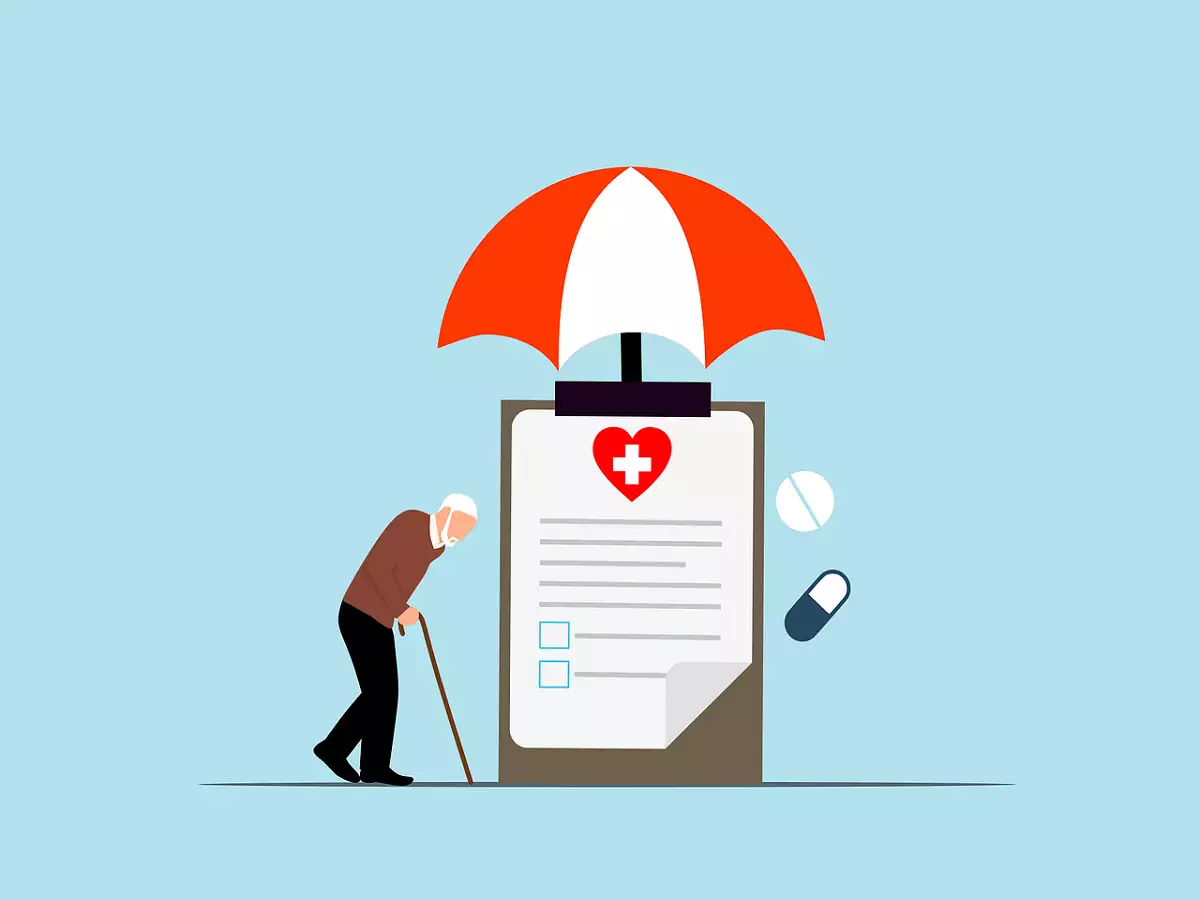How Does Health Insurance Work And What Does It Cover?
Health insurance is crucial for protecting your financial and physical well-being. Learn how to find the best plan for your needs.
Author:Suleman ShahReviewer:Han JuNov 19, 2024265 Shares132.6K Views

In today's rapidly evolving world, where healthcare costs continue to rise, the importance of health insurancein public healthsystems cannot be overstated. Health insurance serves as a vital component in ensuring access to quality healthcare for individuals, promoting preventative measures, and contributing to the overall well-being of communities.
This article explores the multifaceted role of health insurancewithin public health systems, highlighting its significance in fostering a healthier and more resilient society.
Preventative Healthcare Measures
Health insurance serves as a powerful catalyst for promoting and facilitating preventative healthcare measures, contributing significantly to individual well-being and the overall resilience of communities. The often-overlooked role of health insurance in this domain plays a critical part in shaping healthier societies.
Encouraging Regular Check-ups
Health insurance encourages individuals to prioritize and schedule regular check-ups with healthcare providers. Routine check-ups allow for the early detection of potential health issues, facilitating timely interventions and preventing the progression of diseases.
This proactive approach not only enhances individual health outcomes but also contributes to the overall efficiency of public health systems.
Facilitating Screenings And Early Detection
Through comprehensive coverage, health insurance enables access to various screenings and diagnostic tests. This is instrumental in the early detection of conditions such as cancer, diabetes, and cardiovascular diseases.
Early identification of health issues not only improves the chances of successful treatment but also significantly reduces the long-term healthcare costs associated with managing advanced or chronic conditions.
Promoting Vaccination Initiatives
Vaccinations are a cornerstone of preventative healthcare, effectively safeguarding individuals and communities against infectious diseases. Health insurance plans often include coverage for a range of vaccinations, ensuring that a broader segment of the population can benefit from immunization initiatives.
This not only protects individuals but also contributes to the establishment of herd immunity, reducing the overall prevalence of communicable diseases.
Reducing The Burden On Public Health Systems
By actively encouraging preventative healthcare measures, health insurance helps alleviate the burden on public health systems. The early identification and management of health issues at the individual level contribute to a healthier population, ultimately decreasing the demand for extensive and costly medical interventions.
This shift towards preventative care is a strategic investment in the sustainability and efficiency of public health infrastructure.
Empowering Individuals In Well-being Management
Health insurance goes beyond financial coverage; it empowers individuals to actively participate in managing their well-being. Access to preventative services fosters a sense of responsibility for one's health, encouraging individuals to adopt healthier lifestyles and make informed decisions regarding their healthcare.
This empowerment not only leads to improved individual health outcomes but also contributes to the cultivation of a health-conscious society.
Financial Protection For Individuals
As healthcare costs continue to soar, the role of health insurance as a fundamental financial safeguard for individuals and families becomes increasingly paramount.
The absence of adequate coverage can transform routine medical expenses into a substantial financial burden, triggering heightened stress levels and, in severe cases, deterring individuals from seeking essential healthcare services.
Health insurance serves as a critical bulwark against these challenges, offering a shield that ensures individuals can access necessary medical care without enduring overwhelming financial repercussions.
Navigating The Financial Landscape Of Healthcare Costs
Escalating healthcare costs can swiftly transform an unforeseen medical event into a substantial financial crisis. Health insurance acts as a strategic ally, providing a safety net that shields individuals and families from the full brunt of these expenses.
This financial protection allows individuals to navigate the complex landscape of healthcare costs without compromising their financial stability or sacrificing other essential needs.
Mitigating The Risk Of Avoidance Behavior
The fear of incurring exorbitant medical bills can induce a reluctance to seek timely healthcare, leading to the potential exacerbation of health issues. Health insurance serves as a crucial deterrent against avoidance behavior by mitigating the financial implications of seeking medical attention.
With coverage in place, individuals are more likely to prioritize their health, facilitating early intervention, and preventing the escalation of medical conditions that could become more challenging and costly to treat later on.
Relieving The Burden Of Financial Stress
Medical expenses, especially those unforeseen or resulting from chronic conditions, can impose significant financial stress on individuals and families. Health insurance acts as a relief valve, easing the burden of financial stress associated with healthcare costs.
The assurance that medical care is financially manageable empowers individuals to focus on their health without the pervasive anxietyof potential economic hardships.
Ensuring Access To Timely And Necessary Healthcare
The financial protection provided by health insurance ensures that individuals can access timely and necessary healthcare without hesitation. The fear of facing insurmountable medical bills often dissuades individuals from seeking preventive care or addressing emerging health concerns promptly.
Health insurance eliminates this barrier, allowing individuals to prioritize their well-being and facilitating a proactive approach to healthcare.
Fostering Long-term Financial Security
Beyond immediate financial relief, health insurance plays a pivotal role in fostering long-term financial security. By preventing the depletion of savings and averting the accumulation of medical debt, insurance contributes to the overall financial stability of individuals and families.
This stability, in turn, enables them to plan for the future, invest in education, and pursue other aspirations without the constant specter of healthcare-related financial turmoil.
Economic Stability And Productivity
A nation's economic stability and productivity are intricately linked to the health of its population. Health insurance plays a pivotal role in fostering this connection by proactively addressing health concerns, preventing the spread of infectious diseases, and cultivating an environment where individuals can contribute actively to society.
The symbiotic relationship between public health and economic prosperity underscores the significance of health insurance in sustaining a robust and productive nation.
Promoting A Healthy Workforce
Health insurance contributes significantly to the creation and maintenance of a healthy workforce. By providing access to preventive care and timely medical interventions, insurance aids in the early detection and management of health issues.
A healthy workforce is not only more resilient to illness but also more productive, contributing to increased efficiency and output in various sectors.
Reducing Absenteeism And Disability Rates
Adequate health insurance coverage contributes to lower rates of absenteeism and disability within the workforce. Timely medical care prevents the progression of illnesses and ensures that individuals can address health issues promptly, reducing the likelihood of prolonged absences from work.
This, in turn, enhances overall workplace productivity and contributes to economic stability.
Minimizing The Economic Impact Of Chronic Conditions
Chronic conditions can pose a significant economic burden on both individuals and the broader society. Health insurance plays a crucial role in minimizing this impact by facilitating the management of chronic diseases.
By ensuring access to necessary medications, therapies, and specialized care, insurance empowers individuals to lead productive lives despite chronic health challenges, mitigating the economic strain associated with these conditions.
Fostering Innovation And Entrepreneurship
A healthy population, supported by comprehensive health insurance, is more likely to engage in innovation and entrepreneurship. Individuals free from the constant burden of health-related concerns are more inclined to pursue new ventures, contribute to research and development, and drive economic growth.
Health insurance, by promoting a healthy and risk-taking population, becomes an enabler of a dynamic and thriving economy.
Effective Management Of Public Health Emergencies
The importance of health insurance amplifies during public health emergencies, where its role extends beyond individual well-being to the broader community and national resilience.
Ensuring Access To Testing And Treatment
Health insurance ensures that individuals have access to crucial resources during public health emergencies, such as testing and treatment facilities. Rapid and widespread access to testing is vital for identifying and isolating cases promptly, preventing further transmission, and facilitating effective public health responses.
Facilitating Preventive Measures
Adequate coverage enables individuals to engage in preventive measures recommended during public health emergencies. This includes vaccinations, quarantine measures, and other interventions aimed at limiting the spread of infectious diseases. Health insurance, in this context, becomes a proactive tool for community-wide protection.
Contributing To The Overall Containment Strategy
During pandemics or widespread outbreaks, health insurance is a key player in the overall containment strategy. By ensuring that individuals seek timely medical attention and follow preventive measures, insurance contributes to reducing the overall impact of the emergency. This, in turn, supports the broader community and national efforts to manage and mitigate the crisis effectively.
Preventing Escalation Of Crises
The containment and management of public health emergencies heavily rely on individual behaviors and adherence to public health guidelines. Health insurance, by removing financial barriers to access, prevents the escalation of crises.
Individuals with coverage are more likely to seek timely care, adhere to preventive measures, and contribute to breaking the chain of transmission, ultimately safeguarding the broader community.
Reducing Strain On Public Health Resources
The role of health insurancesin alleviating the strain on public health resources is a cornerstone in ensuring the efficiency and effectiveness of healthcare systems.
By spreading healthcare costs across a broader population, health insurance becomes a strategic tool in optimizing resource allocation, enhancing public health infrastructure, and ultimately improving the overall quality of healthcare services.
Balancing Healthcare Costs
Health insurance operates on the principle of risk pooling, where the financial burden of healthcare is distributed among a diverse group of individuals. This balanced distribution mitigates the strain on public health resources, preventing disproportionate stress on specific healthcare facilities or services. As a result, governments can optimize resource allocation, ensuring that healthcare services are available where they are needed most.
Facilitating Efficient Resource Allocation
With the financial burden of healthcare distributed more evenly, governments can allocate resources more efficiently. This includes investments in medical facilities, training healthcare professionals, and acquiring essential medical equipment.
Health insurance thus becomes a catalyst for enhancing the capacity and capability of public health systems, ensuring they are well-equipped to meet the diverse and evolving healthcare needs of their populations.
Investing In Public Health Infrastructure
Health insurance not only addresses immediate healthcare costs but also provides a sustainable source of funding for long-term investments in public health infrastructure. This may include the development of healthcare facilities, implementation of health information systems, and expansion of preventive healthcare programs.
The continuous influx of funds from health insurance premiums enables governments to build a robust and resilient public health infrastructure that can adapt to emerging health challenges.
Improving The Quality Of Healthcare Services
By reducing the strain on public health resources, health insurance contributes to an overall improvement in the quality of healthcare services. Adequate funding allows for the recruitment and retention of skilled healthcare professionals, implementation of advanced medical technologies, and the adoption of best practices in patient care.
As a result, individuals within the population have access to higher quality healthcare services, leading to improved health outcomes and increased satisfaction with the healthcare system.
Promoting A Holistic Approach To Healthcare
Health insurance transcends its role as a financial safety net by actively promoting a holistic approach to healthcare. This comprehensive coverage extends beyond traditional medical treatments, encompassing preventive care, mental healthsupport, and chronic disease management.
Embracing the physical, mental, and emotional aspects of health, health insurance becomes an integral driver in building resilient and thriving communities.
Covering Preventive Care
Health insurance plans typically include coverage for preventive services such as vaccinations, screenings, and wellness check-ups. This proactive approach to healthcare not only reduces the incidence of preventable diseases but also minimizes the strain on healthcare resources by addressing issues before they escalate.
Supporting Mental Health Services
Acknowledging the importance of mental health, health insurance includes coverage for mental health services. This ensures that individuals have access to counseling, therapy, and psychiatric care, promoting mental and emotional well-being.
By integrating mental health support, health insurance contributes to the creation of a healthier and more resilient community.
Managing Chronic Diseases
Chronic diseasesoften require long-term management and specialized care. Health insurance plays a pivotal role in supporting individuals with chronic conditions by covering the costs of medications, treatments, and regular monitoring. This holistic approach not only improves the quality of lifefor those with chronic diseases but also reduces the strain on emergency healthcare services.
Fostering Resilient Communities
Health insurance's holistic approach fosters the development of resilient communities that prioritize overall well-being. By addressing physical, mental, and emotional health, insurance contributes to a population that is better equipped to handle life's challenges.
This resilience, in turn, creates a positive feedback loop, as healthier individuals contribute to the vibrancy and productivity of their communities.
Health Insurance - FAQS
What Are The Top 3 Health Insurances?
- UnitedHealthcare:Known for its extensive network and variety of plans, UnitedHealthcare is often considered one of the top health insurance providers in the United States.
- Anthem (Blue Cross Blue Shield):With a wide range of coverage options and a strong network, Anthem, operating under the Blue Cross Blue Shieldassociation, is another prominent health insurance provider.
- Kaiser Permanente:Renowned for its integrated healthcare model, Kaiser Permanente offers both health insurance and healthcare services, making it a popular choice.
How Much Is Health Insurance In USA?
The cost of health insurance in the United States can vary significantly based on several factors, including your age, location, coverage needs, and the insurance provider. On average, monthly premiums for individual plans can range from a few hundred to over a thousand dollars. Employer-sponsored plans may have varying costs, with employers typically covering a portion of the premium.
It's crucial to obtain personalized quotes from different insurance providers and consider factors like deductibles, copayments, and out-of-pocket maximums to understand the overall cost of coverage.
What Are The 3 Types Of Health Insurance In The Philippines?
- PhilHealth (Philippine Health Insurance Corporation):PhilHealth is a government-managed health insurance program in the Philippines, providing coverage for basic health services and medical expenses.
- Private Health Insurance:Various private insurance companies offer health insurance plans in the Philippines. These plans vary in coverage, including hospitalization, outpatient services, and other medical expenses.
- Health Maintenance Organizations (HMOs):HMOs in the Philippines, such as Maxicare and Medicard, provide comprehensive health coverage, including hospitalization, preventive care, and outpatient services. Members pay a fixed premium for a range of healthcare services.
Conclusion
The importance of health insurance in public health systems cannot be overstated. It is a cornerstone in achieving universal access to healthcare, promoting preventative measures, providing financial protection, and contributing to economic stability.
As societies continue to face evolving health challenges, investing in robust health insurance systems becomes imperative for fostering resilient and thriving communities.
By recognizing and prioritizing the role of health insurance, public health systems can build a foundation for a healthier and more equitable future.

Suleman Shah
Author
Suleman Shah is a researcher and freelance writer. As a researcher, he has worked with MNS University of Agriculture, Multan (Pakistan) and Texas A & M University (USA). He regularly writes science articles and blogs for science news website immersse.com and open access publishers OA Publishing London and Scientific Times. He loves to keep himself updated on scientific developments and convert these developments into everyday language to update the readers about the developments in the scientific era. His primary research focus is Plant sciences, and he contributed to this field by publishing his research in scientific journals and presenting his work at many Conferences.
Shah graduated from the University of Agriculture Faisalabad (Pakistan) and started his professional carrier with Jaffer Agro Services and later with the Agriculture Department of the Government of Pakistan. His research interest compelled and attracted him to proceed with his carrier in Plant sciences research. So, he started his Ph.D. in Soil Science at MNS University of Agriculture Multan (Pakistan). Later, he started working as a visiting scholar with Texas A&M University (USA).
Shah’s experience with big Open Excess publishers like Springers, Frontiers, MDPI, etc., testified to his belief in Open Access as a barrier-removing mechanism between researchers and the readers of their research. Shah believes that Open Access is revolutionizing the publication process and benefitting research in all fields.

Han Ju
Reviewer
Hello! I'm Han Ju, the heart behind World Wide Journals. My life is a unique tapestry woven from the threads of news, spirituality, and science, enriched by melodies from my guitar. Raised amidst tales of the ancient and the arcane, I developed a keen eye for the stories that truly matter. Through my work, I seek to bridge the seen with the unseen, marrying the rigor of science with the depth of spirituality.
Each article at World Wide Journals is a piece of this ongoing quest, blending analysis with personal reflection. Whether exploring quantum frontiers or strumming chords under the stars, my aim is to inspire and provoke thought, inviting you into a world where every discovery is a note in the grand symphony of existence.
Welcome aboard this journey of insight and exploration, where curiosity leads and music guides.
Latest Articles
Popular Articles




